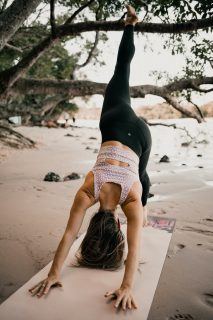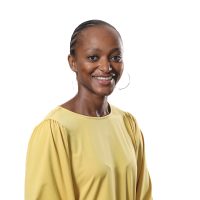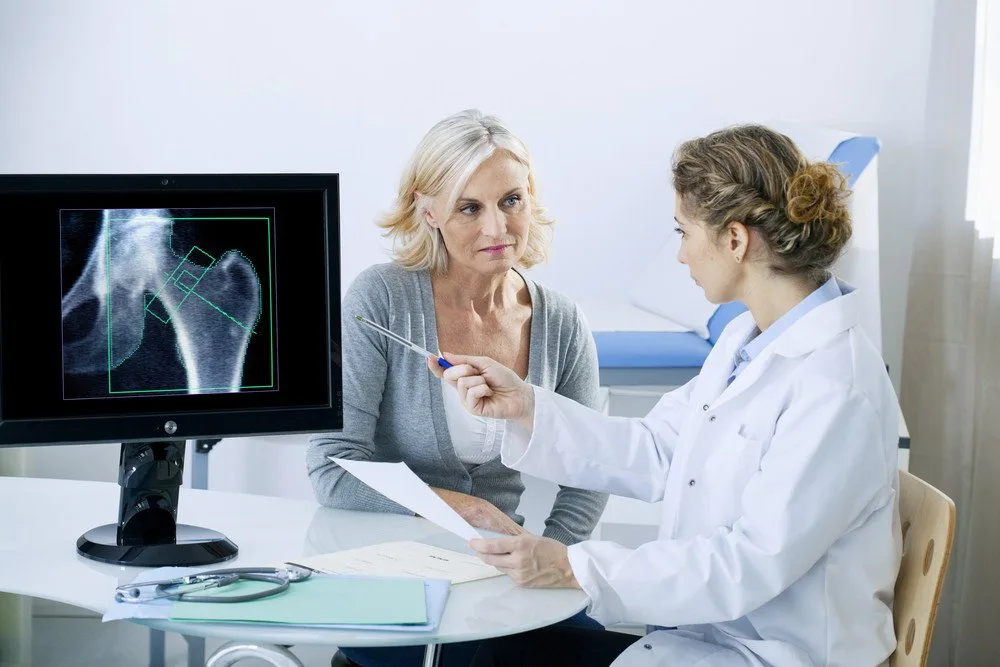Osteoporosis is not unique to older people. We should all be paying more attention to bone health before it’s too late, especially if you’re a woman. This disease reduces the density of bones and can lead to a weaker skeleton. Osteoporosis often results in an increased risk of fractures, particularly of the spine, wrists, hips, pelvis, and upper arms.
Known as ’the silent crippler’ because bone loss is gradual and there are few warning signs, many people don’t realize they are affected until it’s too late. Worldwide, this condition impacts about 200 million women.
No bones about it, women should be looking after their bones
It’s been estimated that up to 50% of women over 50 will break a bone due to osteoporosis. With this in mind, it is important that women of all ages take steps to strengthen and protect their bones. But first, it’s essential to understand why women struggle more than men with bone density.
Bone density in women
Peak bone mass, the greatest bone density achieved during early adulthood, is crucial to bone health later in life. Women generally reach their peak bone mass around the age of 30, while men achieve it later.
Since females start with lower peak bone mass, they have less reserve to rely on as they age. This often sets the stage for a higher risk of bone density problems.
What impacts bone health?
One of the primary factors influencing women’s bone health is hormonal fluctuations. Since estrogen is critical in maintaining bone density, the rapid decline in estrogen that happens after menopause can speed up bone loss.
Hormonal changes during pregnancy and breastfeeding can also contribute to bone density issues. During pregnancy, the growing fetus requires increased calcium. This may lead to maternal bone loss if not replenished through a nutritional diet.
Breastfeeding also puts more demand on the mother’s skeletal system to provide essential nutrients for the baby.
Studies have found that women, compared to their male counterparts, tend to consume less calcium and vitamin D. Both of these are essential nutrients for bone strength. Furthermore, women generally have a longer lifespan than men. This means they spend more years in postmenopausal stages when bone density declines.
A guide to protecting bone health
There are measures that women can take early in life to protect their bones and reduce the risk of developing osteoporosis.
Adequate Calcium and vitamin D Intake
Calcium is a crucial nutrient for bone health, yet many women are not getting enough in their daily diet. Great sources of calcium include dairy products, leafy green vegetables, and fortified foods.
Along with calcium, vitamin D is essential for calcium absorption, so women should try spending time in sunlight (keeping in mind healthy sun habits). They can also supplement vitamin D in foods like fatty fish, fortified dairy products, or even egg yolks.
Balanced Diet
Proper nutrition supports the body’s ability to build and maintain strong bones. Women should focus on consuming a wide range of fruits, vegetables, whole grains, lean proteins, and healthy fats.
Avoid Smoking and Excessive Alcohol Consumption
Lifestyle habits can have an impact on bone health. Smoking has been linked to decreased bone density, as it can interfere with the body’s ability to absorb calcium. Similarly, drinking too much alcohol can have a negative impact on bone health. Cutting down on or quitting smoking and limiting alcohol is the first step to building healthier bones.

Photo by LUNA ACTIVE FITNESS on Unsplash
Moving it can lessen the risk of breaking it
Bone density and exercise go hand in hand, and scientific research has confirmed the connection. Regardless of age or fitness level, if women work out more, bone density benefits are likely to follow.
Yet, not all exercises are equal when it comes to building strong bones or preventing osteoporosis or bone mineral loss.
Certain types of exercise strengthen muscles and bones, while other types are designed to improve balance – both crucial for healthy bones.
Three types of exercise can help to build and maintain healthy bones.
- Weight Bearing Aerobic activity: This includes activities such as walking/jogging, hiking, dancing, and even stair climbing. It is recommended that women get at least half an hour of moderate to vigorous exercise 5 times a week, but 45 minutes to an hour is even better.
- Resistance: Resistance exercise includes free weights or weight machines at home or in the gym. All Virgin Active clubs have a large weights section, and seeking the help of a Personal Trainer to individualize your program is recommended. For best results, resistance exercises can be done 2 or 3 times a week. Make the exercise more challenging by gradually adding weight or repetition and be sure to work different muscles, including arms, chest, shoulders, legs, stomach, and back. Remember to give each muscle group time to recover.
- Flexibility: Having flexible joints helps prevent injury. Examples of flexibility exercises for bone health include activities with regular stretches. A yoga class is a great way to get flexibility exercise with the help of an expert.
Bottom line
Strong, healthy bones are the foundation for a healthier life – well into old age. Osteoporosis and broken bones are not a natural part of the aging process, so we should be taking steps while we still can build bones that will carry us for the long run.
Who is the author?

Dr Phathokuhle Zondi
Dr. Phathokuhle Zondi is a Sports and Exercise Medicine (SEM) Physician and business executive with diversified healthcare and leadership experience.
Over and above her role, notable leadership roles include serving as Chairperson of the Medical Advisory Commission for the South African Sports Confederation and Olympic Committee (SASCOC), Secretary for the newly established College of Sport and Exercise Medicine SA, Director at The Sharks Rugby, medical advisor to Virgin Active Africa and past President of the SA Sports Medicine Association.
She has extensive clinical experience working as a team physician for athletes in a variety of codes and has served as Chief Medical Officer for Team South Africa at the Commonwealth Games, Olympic Games, and Paralympics Games. In August 2017, Dr Zondi has conferred a Ministerial Recognition Award in acknowledgment of her contribution to sport in South Africa.



![women [longevity live]](https://longevitylive.com/wp-content/uploads/2020/01/photo-of-women-walking-down-the-street-1116984-100x100.jpg)










